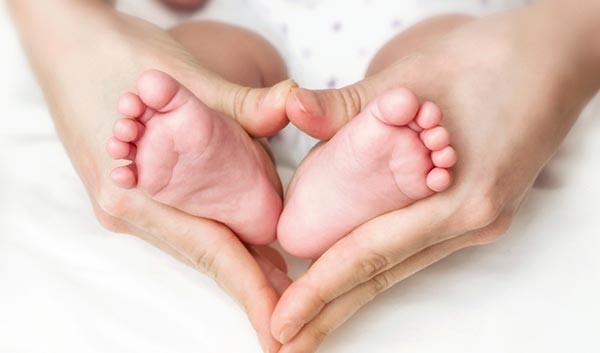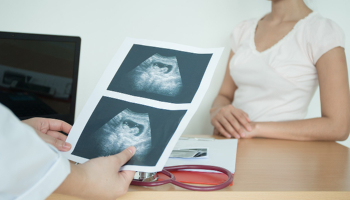What is the Best Age to Give Birth in Singapore?
Gone are the days when couples marry and have kids early. When the Republic of Singapore was founded in 1965, there were 55,725 live births. Fast forward 54 years to 2023, and the number of live births has fallen dramatically, with just 33,541 babies born.
This difference is all the more jarring considering the fact that the Singapore population numbered just 1.9 million in 1965, compared to 5.9 million in 2023. In the 1960s, huge broods of seven or eight children were the norm. These days, with only 0.97 births per woman, children (and siblings) are becoming quite scarce.
Women are also giving birth at a much later age than before. The median age of first birth for Singaporean mums is 31.3 years old (Source: CNA), with the number of women giving birth in their 40s doubling over the past 30 years. Delaying childbirth is a natural effect living in a developed economy, where higher education is important for both men and women, and couples want to be financially ready to start a family.
Yet, there is pressure from the older generation to not wait until it is "too late". What does this mean for aspiring parents who aren’t ready to have children yet?
What is the best age to give birth in Singapore?
There is no universal answer for the best age for a woman to give birth. Age is just one factor that should go into your decision to start a family; you and your spouse also need to be financially and emotionally ready to have children.
That said, here are some considerations that will help you decide when the best age to get pregnant is.
You avoid fertility issues when you have kids in your 20s
Biologically speaking, your 20s to early 30s are the best age to have children, because you are less likely to struggle with fertility issues.
Being a 20-something mum has other advantages too. You recover more easily from childbirth, and you can worry a less about the complications that come with later pregnancies, such as high chances of miscarriage, gestational diabetes, or high blood pressure. Younger mothers also report having more energy to look after their kids, and the support of grandparents who are healthier and able to help raise them.
Giving birth in your 30s gives you time to be financially and emotionally ready
In high-cost Singapore, many couples choose to wait to have children until they have established a stable career, saved some money, and purchased their first BTO flat.
While there are government benefits that help defray the cost of childbirth and parenthood, it certainly doesn’t hurt to spend time saving a small nest’s egg. This can go a long way to help afford your child’s education or make up for other costs that come with being a parent, such as if one of you needs to be a stay-at-home parent for a few years. The emotional maturity that comes with age can also better equip couples to cope with the challenges of child rearing.
Fertility-wise, it’s best not to wait too long. Your odds of conceiving starts to gradually decrease as you get older, decreasing more dramatically in your late thirties.
Start saving for parenthood with a plan like Income’s Gro Cash Flex Pro. Enjoy yearly cash payouts1 from the end of the 2nd policy year, which can help you manage your expenses once your little one arrives.
Postponing pregnancy to your 40s comes with major health risks
By the time you reach age 40, the chances of conceiving naturally falls to less than 5%. While advances in medical technology have allowed couples to achieve their baby dreams well into their 40s, delaying pregnancy this late comes with serious health risks.
A survey shows that 70% of newlyweds assume that assisted reproductive technologies are a magic bullet that will easily solve fertility problems. The reality is a lot less encouraging. The success rate of live births from these treatments is less than 50%, with very unfavourable odds for those in their 40s. In fact, the Government Co-Funding Scheme for assisted conception procedures are only available to women aged 40 and up if they have attempted assisted reproduction or intra-uterine insemination procedures before age 40.
If you do end up conceiving in your 40s, the odds of having a healthy, uncomplicated pregnancy are low. A 40-year-old mum’s risk of having a baby with Down Syndrome is 10 times higher than if she were in her 20s. There is also the increased risk of miscarriage due to pre-existing medical conditions or genetic problems, or premature births because of pregnancy complications like placenta pravia.
Other unexpected health issues may also creep up in your 40s, which can prevent you from conceiving. For instance, a woman's risk of breast cancer, the most common cancer amongst women in Singapore, increases with age. Breast cancer treatments often result in temporary infertility or make it more difficult to conceive even when in remission.
No matter when you decide to start a family, it is always worth noting the above factors in order to make a more informed decision.
Tips for mothers-to-be
Whether you want to have kids as early as you can afford to, or wait until you're more financially settled, here are some tips all mothers-to-be can benefit from.
Plan your family ahead
Deciding when to have children and how many should be a conscious choice that is planned for in advance. Your spouse might love you for your spontaneity, but having children is not something you want to leave to chance.
Proper planning enables you to ensure you are able to have a family of your ideal size when your bodies and finances permit. You will be able to predict ahead of time how much money you need to set aside. If you or your spouse need to take a break from work, planning will help you gauge the impact on your career, and how much you need to save to make up for it.
Monitor your health and go for screenings regularly
To conceive a healthy child, you and your spouse have to be as healthy as possible. Regular, age-appropriate health screening is crucial, especially if you plan to have a child in your 30s. This ensures that any problems are identified and treated as early as possible.
Some insurance policies provide complimentary regular health screenings as part of the product features. Income's Lady 360 provides you with a tailored health screening every two years2 after the second year of your policy.
It also helps to have fertility screenings, even if you’re not planning to conceive any time soon. This will help you detect and address conditions like low sperm count among men or endometriosis, one of the leading causes of infertility among Singaporean women. Once you’re aware of any existing fertility issues, you can make adjustments and try to conceive earlier than planned, while the odds are still good.
Protect yourself financially with the right insurance
Whatever age you are when you do get pregnant, it’s imperative to ensure you’re well prepared come what may. Income's Maternity 360 insurance plan offers comprehensive protection for you and your baby with just a single premium, covering you against pregnancy complications, congenital diseases and even death. You also have the option to take up a new policy for your child after birth, with just a simple health declaration, ensuring your little one is protected as he or she grows up.
No matter when you decide to start a family, be sure to understand the risks involved and take steps to give yourself the best possible shot no matter the circumstances.
1 If the insured survives at the end of two years from the policy entry date and premiums for this policy have been paid for at least two years, you will start to receive cash payouts after the end of the 2nd policy year. The cash payout consists of a yearly cash benefit, which is 3% of your sum assured, and a non-guaranteed cash bonus, which is up to 5.40% of your sum assured (based on a 5 year premium term for a policy term till age 120 and the assumption that the Life Participating Fund earns a long-term average return of 4.25% per annum). The non-guaranteed yearly cash bonus is dependent on the premium term and policy term, and may vary according to the future performance of the Life Participating Fund. If the Life Participating Fund earns a long-term average return of 3.00% per annum, the non-guaranteed cash bonus will be up to 2.97% of the sum assured (based on a 5 year premium term for a policy term till age 120). The policyholder will receive the final yearly cash benefit and cash bonus as a lump-sum with the maturity benefit if the insured is still alive and the policy has not ended. The policy will end once this payment is made.
If the sum assured of the policy is at least $80,000, the yearly cash payouts can be received in monthly payments. The amount of each monthly cash benefit payment will be worked out. The policyholder cannot change the payout frequency once the first cash benefit is paid.
The above-mentioned percentages do not reflect the policy’s illustrated yield at maturity. The sum assured in this plan is a notional value used to determine the cash benefit and non-guaranteed bonuses. It does not represent the amount payable upon death or diagnosis of terminal illness.
2 The biennial health screening benefit is available from the second policy anniversary of the cover start date. We will write to you when this benefit is due, provided that there are no outstanding premiums due under your policy, and the policy is still inforce. This benefit is not transferable and the health screening must be completed within 180 days from the date we write to you and conducted at any one of our panel of clinics listed on our letter to you. You can find the list of tests provided under this benefit here.
This article is meant purely for informational purposes and does not constitute an offer, recommendation, solicitation or advise to buy or sell any product(s). It should not be relied upon as financial advice. The precise terms, conditions and exclusions of any Income Insurance products mentioned are specified in their respective policy contracts. Please seek independent financial advice before making any decision.
These policies are protected under the Policy Owners’ Protection Scheme which is administered by the Singapore Deposit Insurance Corporation (SDIC). Coverage for your policy is automatic and no further action is required from you. For more information on the types of benefits that are covered under the scheme as well as the limits of coverage, where applicable, please contact Income Insurance or visit the GIA/LIA or SDIC websites (www.gia.org.sg or www.lia.org.sg or www.sdic.org.sg).
This advertisement has not been reviewed by the Monetary Authority of Singapore.









